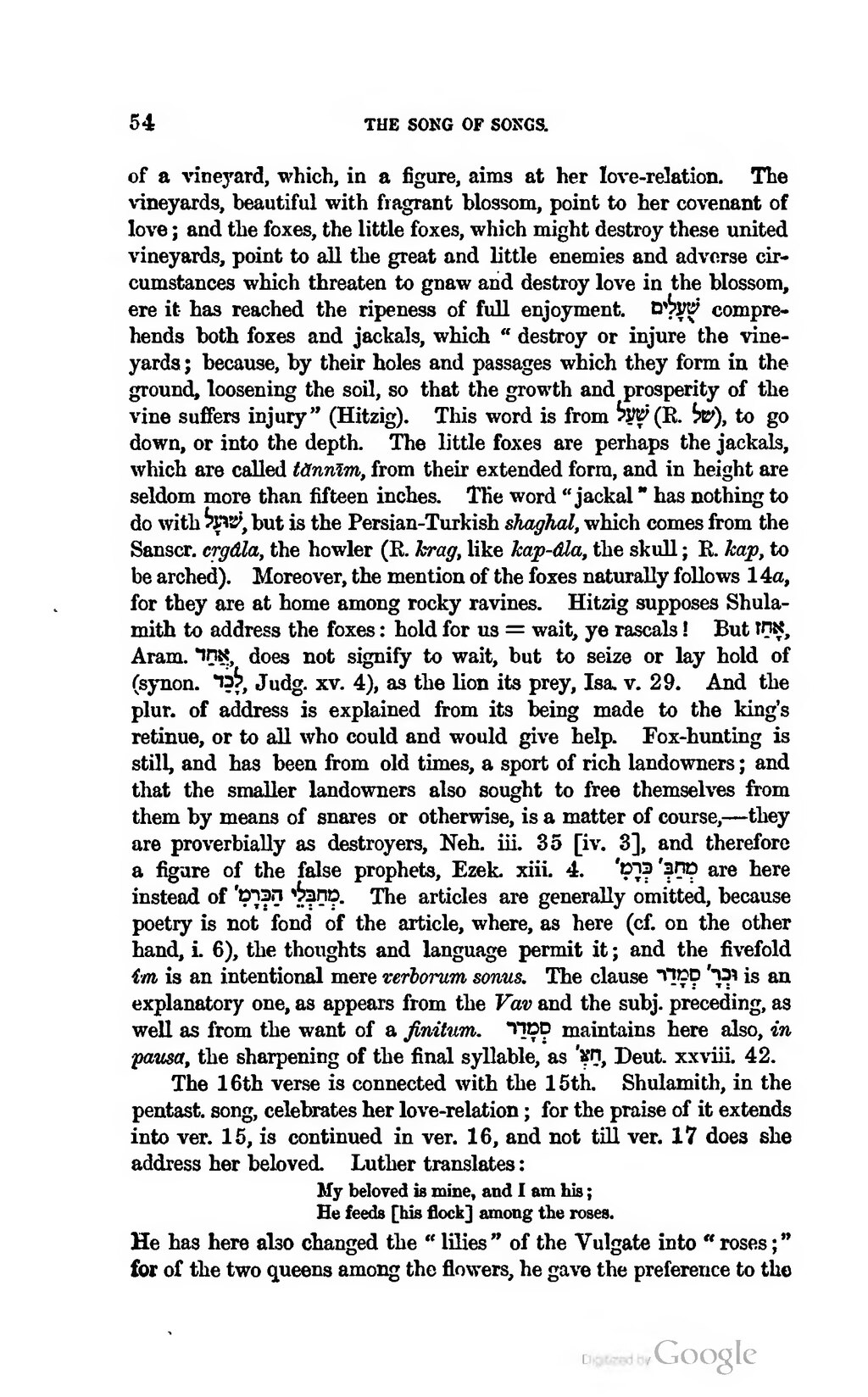of a vineyard, which, in a figure, aims at her love-relation. The vineyards, beautiful with fragrant blossom, point to her covenant of love; and the foxes, the little foxes, which might destroy these united vineyards, point to all the great and little enemies and adverse circumstances which threaten to gnaw and destroy love in the blossom, ere it has reached the ripeness of full enjoyment. שׁעלים comprehends both foxes and jackals, which “destroy or injure the vineyards; because, by their holes and passages which they form in the ground, loosening the soil, so that the growth and prosperity of the vine suffers injury” (Hitzig). This word is from שׁעל (R. של), to go down, or into the depth. The little foxes are perhaps the jackals, which are called tǎnnīm, from their extended form, and in height are seldom more than fifteen inches. The word “jackal” has nothing to do with שׁוּעל, but is the Persian-Turkish shaghal, which comes from the Sanscr. crgâla, the howler (R. krag, like kap-âla, the skull; R. kap, to be arched). Moreover, the mention of the foxes naturally follows 14a, for they are at home among rocky ravines. Hitzig supposes Shulamith to address the foxes: hold for us = wait, ye rascals! But אחז, Aram. אחד, does not signify to wait, but to seize or lay hold of (synon. לכד, Jdg 15:4), as the lion its prey, Isa 5:29. And the plur. of address is explained from its being made to the king's retinue, or to all who could and would give help. Fox-hunting is still, and has been from old times, a sport of rich landowners; and that the smaller landowners also sought to free themselves from them by means of snares or otherwise, is a matter of course, - they are proverbially as destroyers, Neh. 3:35 [4:3], and therefore a figure of the false prophets, Eze 13:4. מחבּ כּרם are here instead of מחבּלי הכּרם. The articles are generally omitted, because poetry is not fond of the article, where, as here (cf. on the other hand, Sol 1:6), the thoughts and language permit it; and the fivefold îm is an intentional mere verborum sonus. The clause וּכר סמדר is an explanatory one, as appears from the Vav and the subj. preceding, as well as from the want of a finitum. סמדר maintains here also, in pausa, the sharpening of the final syllable, as חץ, Deu 28:42.
The 16th verse is connected with the 15th. Shulamith, in the pentast. song, celebrates her love-relation; for the praise of it extends into Sol 2:15, is continued in Sol 2:16, and not till Sol 2:17 does she address her beloved. Luther translates:
My beloved is mine, and I am his;
He feeds (his flock) among the roses.
He has here also changed the “lilies” of the Vulgate into “roses;” for of the two queens among the flowers, he gave the preference to the
Page:04.BCOT.KD.PoeticalBooks.vol.4.Writings.djvu/2199
Jump to navigation
Jump to search
This page needs to be proofread.
